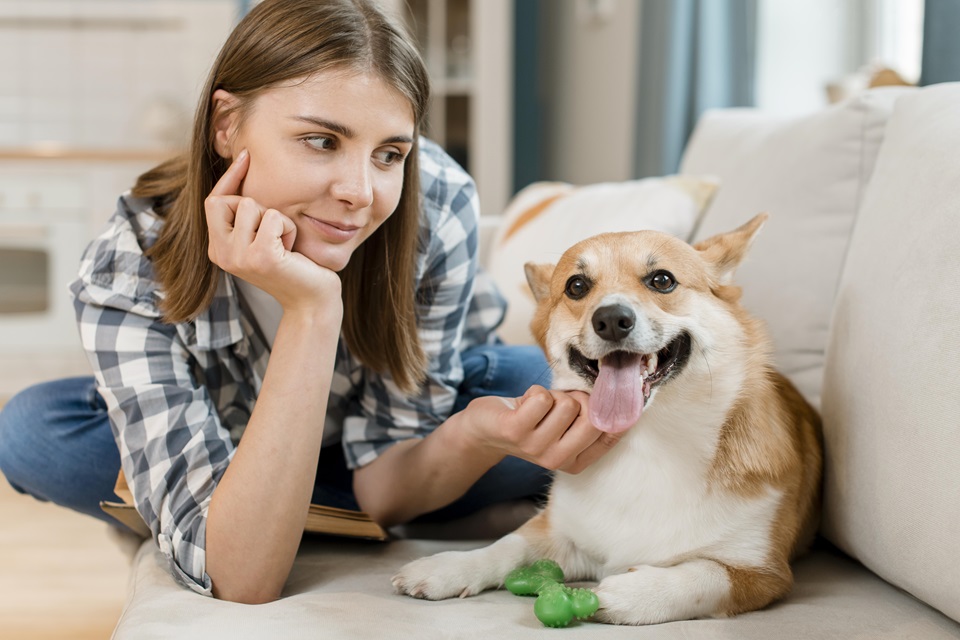Welcoming a furry friend into your life brings boundless joy and companionship. Dogs become cherished members of our families, but their care comes with a host of responsibilities. From nutrition to training, understanding the dos and don’ts of dog ownership is crucial for their well-being and happiness. Let’s explore these essential guidelines in detail.
Table of Contents
The Dos:
- Provide Nutritious Meals: A balanced diet is the cornerstone of a healthy dog. Invest in high-quality dog food tailored to their age, breed, and size. Consult your vet for dietary recommendations and ensure they have access to fresh water at all times.
- Regular Exercise Regimen: Dogs thrive on physical activity. Daily walks, play sessions, and mental stimulation are vital for their overall health and happiness. Engage in activities that suit your dog’s energy levels and preferences.
- Training and Socialization: Start training early to instill good behavior and manners. Basic commands like sit, stay, and come are essential for communication. Socialize your dog with other pets and people to prevent fear or aggression issues later on.
- Routine Veterinary Care: Regular vet checkups are non-negotiable. Stay up to date on vaccinations, parasite control, and dental hygiene. Early detection of health problems can save both money and heartache further down the line.
- Safe Environment: Create a safe haven for your dog at home. Secure hazardous items, fence off danger zones, and provide cozy bedding. Indoor and outdoor, ensure they have space to explore and relax without any risks.
- Lots of Love and Affection: Dogs flourish when showered with love and affection from their human companions. Dedicate time to cuddle, offer belly rubs, and engage in playful activities. These positive interactions not only deepen the bond between you and your furry friend but also cultivate a sense of happiness and trust within your relationship.
- Identification Measures: Accidents happen, and dogs wander off, but proper identification increases the chances of a happy reunion. Ensure your dog wears a collar with ID tags and consider microchipping for added security. This simple step could be a lifesaver in an emergency.
When it comes to feeding our furry companions, it’s crucial to be mindful of what they can and can’t eat. While some foods are safe and even beneficial for dogs, others can be harmful or even toxic. Can dogs eat blueberries and other human foods?
Some common foods like chocolate, grapes, and onions can be toxic and should be avoided at all costs. As responsible pet owners, it’s essential to educate ourselves on what foods are safe to share with our canine friends and what to steer clear of to ensure their well-being.
The Don’ts:
- Neglect Exercise Needs: Dogs need regular exercise to stay physically and mentally fit. Avoid the pitfalls of a sedentary lifestyle by incorporating daily walks and engaging activities into their routine.
- Skip Training Sessions: Consistency is key when it comes to training. Avoid shortcuts or harsh methods that could damage your dog’s trust. Instead, use positive reinforcement to reinforce good behavior and address any challenges with patience.
- Overfeed or Underfeed: Maintaining a healthy weight is vital for your dog’s well-being. Follow feeding guidelines provided by your vet and monitor their body condition regularly. Overfeeding can lead to obesity, while underfeeding deprives them of essential nutrients.
- Ignore Behavioral Issues: Address behavioral problems head-on rather than ignoring or dismissing them. Seek guidance from professionals if needed to address issues like aggression, anxiety, or destructive behavior effectively.
- Neglect Veterinary Care: Routine vet visits are preventive care essentials. Skipping vaccinations or checkups can leave your dog vulnerable to illness or disease. Stay proactive about their health to ensure you have a long and happy life together.
- Leave Unsupervised in Unsafe Environments: Never leave your dog unsupervised in hazardous situations. This includes hot cars, busy roads, or areas with toxic substances. Prioritize their safety at all times.
- Withhold Affection as Punishment: Love and positive reinforcement are the cornerstones of effective dog training. Avoid punitive measures that could harm your bond with your dog. Instead, focus on building trust and mutual respect through kindness and understanding.
Conclusion
To sum up, raising a dog is an enriching journey brimming with love, joy, and commitment. Adhering to these guidelines of dos and don’ts sets the stage for a gratifying and harmonious connection with your beloved furry companion. Always bear in mind that your dog depends on you for their welfare, so take pride in embracing the role of a compassionate and accountable pet owner.



